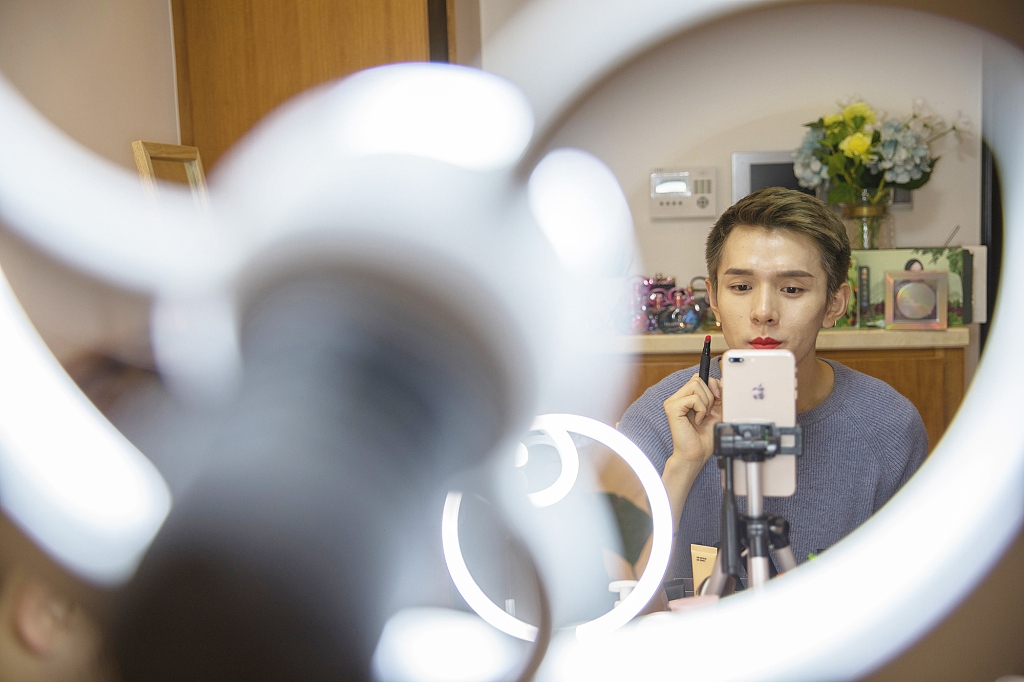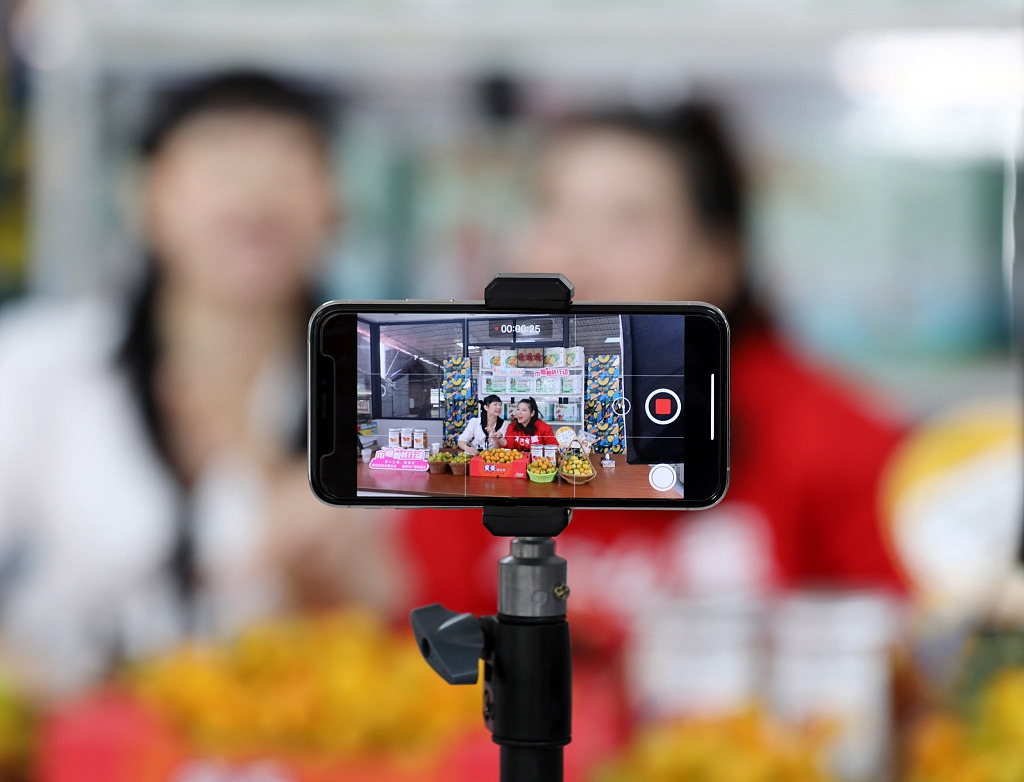China rolled out new restrictions on livestream sales on e-commerce platforms, after several influencers, including "lipstick king" Li Jiqai, face public backlash over the quality of the products and services.
According to the new rules issued by the National Radio and Television Administration on Monday, the e-commerce platforms should verify qualifications of retailers who are going to launch livestreams sales. All the certifications should be well reserved for inspections.
For disqualified shops without real-name authentications, livestream sales will be forbidden. The top influencers and their channels will be the main target for inspections.
Why are the new restrictions being introduced?
Selling products through livestreams on China's e-commerce platforms such as Taobao.com and Tmall.com is a trend that started in 2016, but became more popular in 2018 and 2019, when Li Jiaqi, known as "lipstick king" sold 15,000 lipsticks within five minutes, defeating Jack Ma, founder of Alibaba, in a competition.
During the "Double 11" shopping festival this year, Chinese netizens renewed the 2019 record and livestream services contributed greatly. According to the U.S. consultancy Coresight Research, the livestream market brings in about 125 billion dollars in 2020, almost doubling the number in 2019. Alibaba's data shows that nearly 300 million people watched the livestream sales during the event, and brought a gross merchandise volume (GMV) twice as much as last year.
However, soon after the shopping frenzy, China Consumers Association exposed several cases that reflected a different side of the story.
Among the 334,083 complaints collected by the association, several involved influencers and celebrities. According to the association, Li Jiaqi's livestreams received complains for not allowing consumers to return the products. Wang Han, a host with Hunan TV Station, was accused of being involved in creating fraud sales revenue. and Li Xueqin, a newly rising influencer known for a talk show variety, for using bots during her livestream.

File photo of Li Jiaqi, lipstick king, livestreaming on January 3, 2020. /CFP
File photo of Li Jiaqi, lipstick king, livestreaming on January 3, 2020. /CFP
Only days ahead of the association's criticism, another influencer and livestream salesman Xinba, was the target of a complaint for selling "fake edible birds' nests" during his livestream sales. Though not verified by authorities, the incident also drew wide discussion and concern in the Internet.
What do experts say about livestreaming sales?
Pan Helin, executive dean of the Institute of Digital Economy, Zhongnan University of Economics and Law, told China News Service in an interview that the livestreaming sales should not be completely canceled.
"For the livestream sales, we should first of all affirm that it is valuable, especially for boosting sales during the COVID-19 pandemic. It has made up for what was lacking in offline sales. Most of the current problems could be blamed to immature industry," said Pan.
Pan predicted that with the popularization of 5G, as well as technologies such as augmented reality and virtual reality, the livestreaming sales will continue to boom.

File of livestream sales for promoting local agricultural products in Guagnxi Zhuang Autonomous Region on November 20, 2020. /CFP
File of livestream sales for promoting local agricultural products in Guagnxi Zhuang Autonomous Region on November 20, 2020. /CFP
Bian Yongzu, deputy director of Chongyang Institute for Financial Studies of Renmin University, said that the development of livestream sales is in line with the growing Internet economy, as well as the development of technology and human society.
"An increasing number of enterprises will launch sales. It's the trend," said Bian. "It is normal for a novel phenomenon to have problems during its growth. That is when we need the supervision departments to come up with legitimate rules or laws for regulation. It will get back to the right track, it only takes some time."
In fact, regulations about livestream sales have already been made since it became an important part of the e-commerce.
On July 1, the China Advertising Association issued a regulation and on November 6, the State Administration for Market Regulation published an instruction on regulating the livestream sales events, clarifying the responsibilities and obligations of the involved bodies. On November 13, the Cyberspace Administration has also published a drafted regulation on the registration, marketing catalogs and the protections of the minors in such livestream events.
In the newly issued rules by the National Radio and Television Administration, real-name registration is required to reward anchors and minors will not be allowed to reward influencers any more.
(Cover image: Livestream sales event in Zhengzhou City, Henan Province on June 19, 2020. /CFP)

